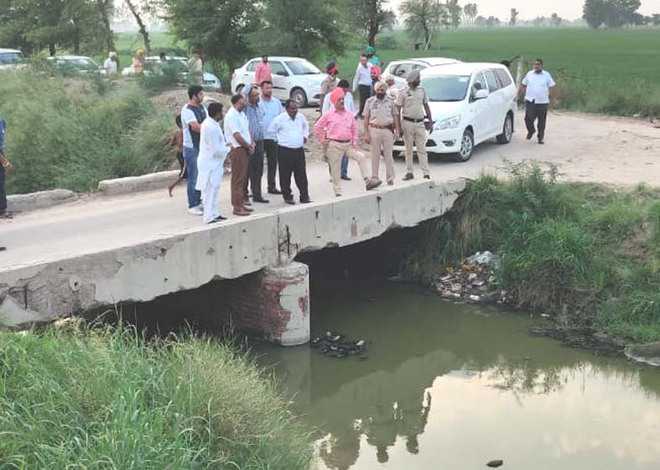Take water samples from Fazilka drains: DC to PPCB
Praful Chander Nagpal
Fazilka, August 9
Fazilka Deputy Commissioner Manpreet Singh has directed the Punjab Pollution Control Board (PPCB) authorities to take samples of the water flowing in different drains in the Fazilka area to assess water quality. “The samples will be tested at Thapar University, Patiala,” said the DC.
A high-level committee comprising officers of Punjab Pollution Control Board, Punjab Water Supply and Sewerage Board, Punjab Agriculture Department and the Local Bodies Department, besides the Deputy Commissioner, visited different drains to check the quality of water after the directions issued by the National Green Tribunal (NGT).
Acting on the petition filed by a local progressive farmer Vikram Ahuja, the NGT had directed the Fazilka Deputy Commissioner and other stakeholders to submit “factual and action-taken report” by August 25.
The Deputy Commissioner has appointed a nodal officer for the purpose.
Ahuja had claimed that 21 major drains and many sub-drains carrying sewage from various parts of the state have contaminated subsoil water of 132 villages.
He provided the alarming counts of total dissolved solids (TDS), fecal coliform (F Coli) and total suspended solids (TSS) gathered under the RTI Act for the 21 drains.
Deputy Commissioner Manpreet Singh said, “Untreated water of five districts of Moga, Ferozepur, Fazilka, Muktsar and Faridkot is thrown into the drains which reach Fazilka being the low-lying area.”
Executive Engineer (Drainage) Pawan Kapoor said the untreated water was accumulated on hundreds acres at the termination point near Kadar Baksh village. From there the water flowed over to Pakistan, but Pakistan didn’t allow the water to enter their territory. Kapoor claimed that India raised the issue with the Pakistan authorities in this regard during the Indus Water Treaty meeting, but to no avail.
Various waterborne diseases have caused havoc in border villages situated along the Sutlej as residents were left with no option, but to consume contaminated water.
The DC said the next meeting of stakeholders was fixed for August 10.










